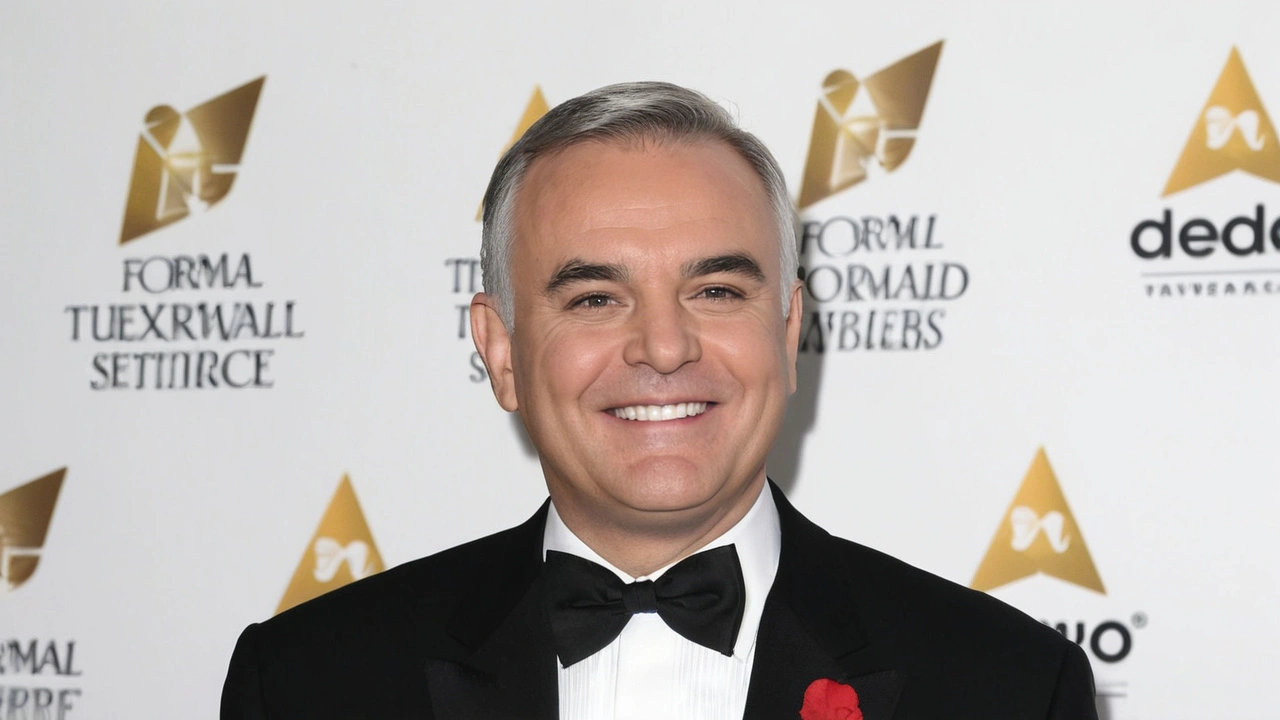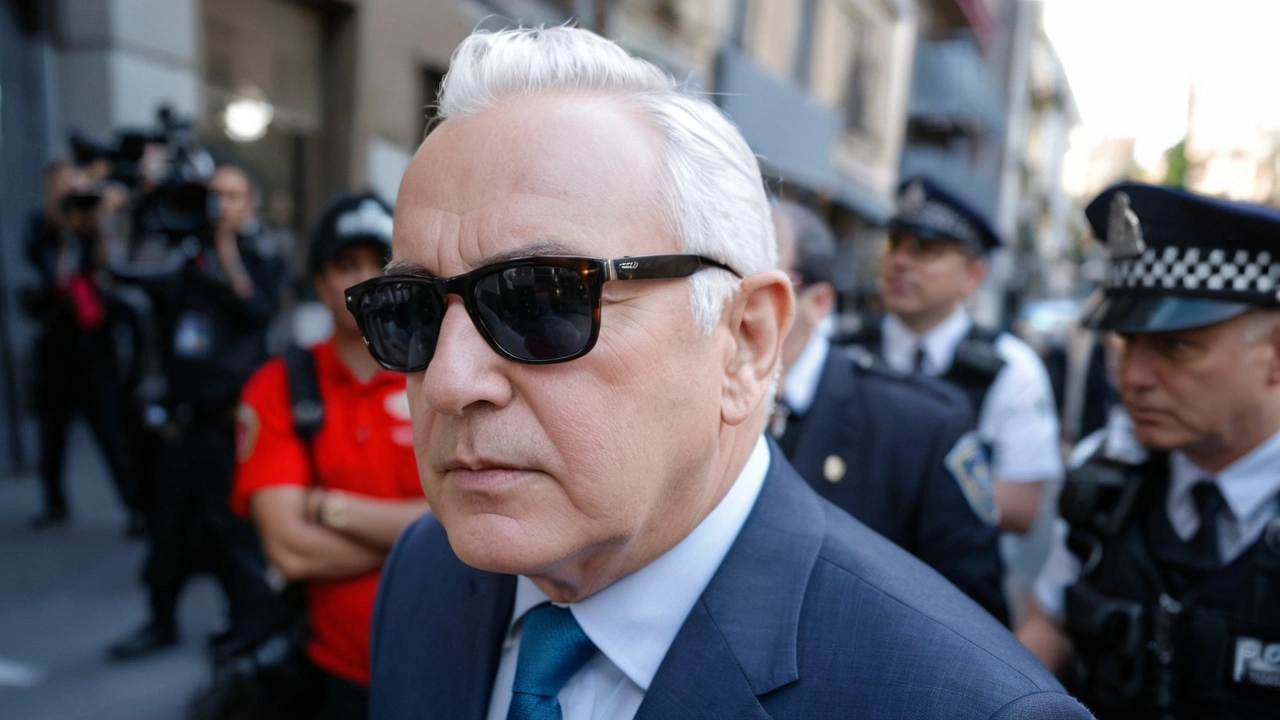1 Aug 2024
- 6 Comments
BBC's Leadership Faces Intense Scrutiny
The British Broadcasting Corporation (BBC) is currently under intense scrutiny, as Culture Secretary Lisa Nandy has called for an urgent meeting with BBC Director-General Tim Davie. The meeting aims to address serious concerns over the BBC's handling of the Huw Edwards case. Edwards, a former premier newsreader with the network, pleaded guilty to charges of making indecent images of children just days ago, creating a firestorm of controversy and raising questions about the corporation's internal procedures and policies.
The Charges and Timeline
Huw Edwards, who had been the highest-paid newsreader at the BBC until his resignation in April, was involved in a scandal that left many shocked and appalled. On Wednesday, Edwards pleaded guilty to three counts of making indecent images of children. According to Westminster Magistrates Court, Edwards had been sent 41 indecent images between December 2020 and August 2021. Among these, seven images were classified as Category A—considered the most severe, showcasing penetrative sexual activity or sadism. The rest of the images varied between Category B and C, which include non-penetrative sexual activity and other objectionable material.
Initial Arrest and BBC's Response
It has emerged that the BBC was aware of Edwards' arrest as early as November, yet continued his employment until he resigned in April. This decision has been met with widespread criticism, raising questions about the protocols and ethics followed by one of the world's leading news organizations. Despite not facing formal charges at the time of his arrest, internal discussions revealed significant risks to Edwards' health, which might have influenced the BBC's decision to retain him.
Financial Implications
Adding fuel to the fire, it was disclosed that Edwards was among the highest-paid presenters at the BBC. In the 2023-24 financial year, he earned between £475,000 and £479,999, a marked increase from the previous year. This revelation has intensified public outcry, as many are questioning how the organization justified such high remuneration amid the pending investigation.
Prosecutions and Legal Proceedings
During the court proceedings, Prosecutor Ian Hope indicated that a suspended sentence might be considered for Edwards, igniting further debate on the appropriateness of legal actions taken against such individuals. Edwards' case has been thoroughly unsettling for many, with images depicting children estimated to be between the ages of seven and 15, adding layers of emotional turmoil to an already tragic situation. The images were sent to Edwards by a 25-year-old named Alex Williams from Merthyr Tydfil in South Wales. Interestingly, the Metropolitan Police stumbled upon these conversations during an unrelated investigation, which led them to unearth the incriminating evidence.
The Technicalities of 'Making' Images
One of the most misunderstood aspects of the case is the legal term 'making' indecent images. According to the Crown Prosecution Service, 'making' can mean anything from opening and accessing the content to downloading and storing it. Even receiving an unsolicited image via social media channels qualifies, adding complexity to the case against Edwards. Philip Evans KC, defending Edwards, argued that there was no evidence to suggest Edwards had created any of the material himself, yet the act of receiving such heinous content violates the law.
BBC's Reaction
In response to the scandal, the BBC released a statement expressing shock and condemning the behavior as abhorrent. The statement further clarified that if Edwards had been formally charged during his employment, the corporation would have acted immediately to dismiss him. However, the revelation that the BBC was privy to the arrest but chose to continue his employment until charges were formally laid has left many questioning the ethical and operational standards of the world's oldest national broadcaster.

Culture Secretary's Position
Lisa Nandy is expected to seek explanations during her meeting with Tim Davie, reflecting the government's growing interest and involvement in the matter. The news of Edwards' actions and the BBC's handling has not just embarrassed the corporation but also raised larger ethical questions about accountability. This incident serves as a grim reminder of the importance of rigorous internal policies and proactive measures to maintain integrity and trust in public institutions.
The meeting between Nandy and Davie is set to be more than just an exchange of words; it is expected to bring about substantial discussions on revamping internal protocols, ensuring tighter controls, and establishing more transparent policies. For now, all eyes are on the BBC, waiting to see how it will navigate this unprecedented challenge.


Seyi Aina
August 1, 2024Look, the BBC kept a known predator on air while cashing in on his paycheck. That's just lazy management, and it shows how they value profits over protecting kids. If the board had a real conscience they'd have pulled the plug ages ago.
Alyson Gray
August 25, 2024I remember the first time I tuned into the BBC for the nightly news, feeling like I was part of something bigger, a trusted voice in my living room. Then this whole Huw Edwards mess drops like a bomb, shattering that illusion in a way that feels almost cinematic. It's heartbreaking to think about the children whose lives are forever marred by these vile images, and yet the corporation seemed to turn a blind eye, holding onto a star for the sake of ratings.
People keep saying "we all make mistakes," but this was no innocent slip‑up – it was a sustained pattern of consuming illegal content. The fact that the BBC knew about his arrest back in November and still let him stay on the air is a betrayal that cuts deep, especially for viewers who trusted him with the nation's headlines.
And let's not ignore the jaw‑dropping salary he was raking in – nearly half a million pounds a year – while the rest of us were dealing with the cost‑of‑living crisis. It feels like the BBC's own standards are as flimsy as the excuses they keep spouting.
Honestly, the whole situation makes me want to throw my remote at the TV in frustration. The BBC has a responsibility to protect the public, not to hide behind bureaucratic nonsense while a scandal unfolds. I can't help but think this is just the tip of an iceberg, and there are probably more stories of negligence tucked away in their archives.
We deserve transparency, accountability, and a clear message that no amount of fame can shield someone from the law or moral reckoning. Until the BBC proves they're willing to change, I'm going to keep my distance and seek out alternative sources that actually care about integrity.
Shaun Collins
September 17, 2024yeah the bbc messed up it’s obvious they chose money over morals
Chris Ward
October 10, 2024i think everyone is overreacting here its just one guy and the bbc is still a great source of info its not like the whole thing collapses because of one scandal i mean sure it's bad but let's keep perspective
Heather Stoelting
November 2, 2024Totally with you! It’s great to see someone call out the hype and remind us that the bbc still does a lot of good work. Keep the convo positive and focused on real change
Travis Cossairt
November 25, 2024Just another messy headline.